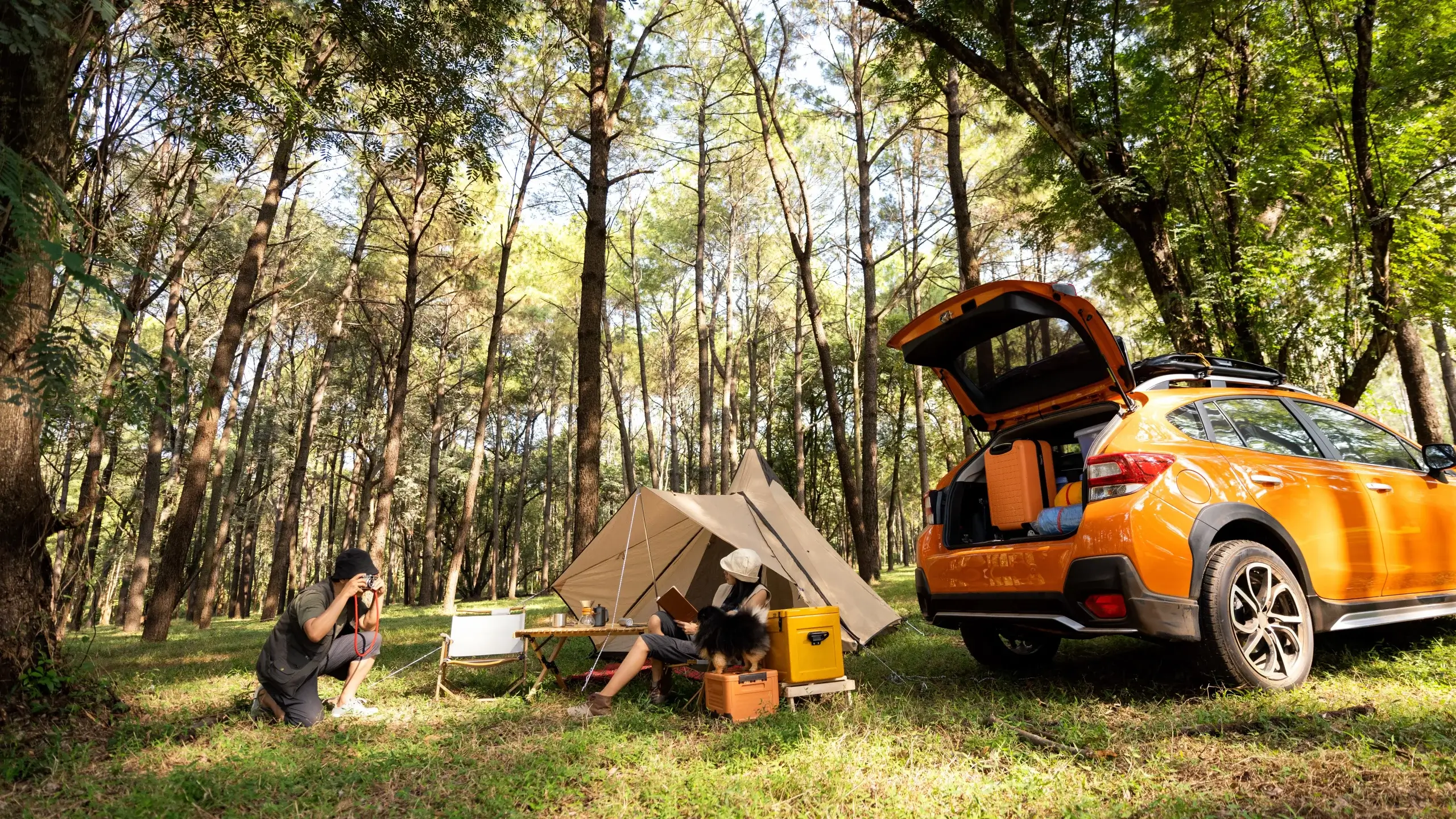Hitting the road with your loved ones for a camping trip is a great adventure. It helps you escape the monotony of your everyday life and lets you explore the outside world.
However, remember that a safe and enjoyable road trip requires a great deal of planning. And to assist you in this regard, we have listed the top seven tips for your camping road trip. So, let’s get those wheels rolling!
Get Your Car Insured
Before taking your car on the road for a camping trip, you must insure it. Here are some common insurance types that you can consider:
Liability Insurance
- It protects you if you’re at fault for an accident and cause injury or property damage to someone else.
- This is mandatory by law in most places around the world, so if you’ve just bought a brand new car, make sure to get this coverage at the least.
Collision Insurance
- It covers damages to your car if you’re at fault for a collision.
- You can expect repairs or replacement of your vehicle up to its value.
Comprehensive Insurance
- Typically, covers damages to your car caused by non-collision events, such as theft, weather damages, or vandalism. If you’re looking for a reliable provider, consider ROLLiN’ comprehensive car insurance.
Personal Injury Protection (PIP) Insurance
- Covers around 80% of your medical bills and lost wages if you’re injured in a car accident, regardless of who’s at fault.
- It may also cover other expenses, such as childcare and household help.
Keep in mind that although all insurance companies offer these coverage types, they’re not all the same in terms of customer service, service quality, and cost. So make sure to get multiple quotes before choosing a provider.
Get Your Vehicle Inspected Beforehand
The next step is to inspect your vehicle before starting your journey to ensure there are no mechanical breakdowns during the trip. Here are the things that you must check:
- Fluid levels: check vehicle oils and coolant levels.
- Tires: inspect tire pressure, tread depth, and the overall tire condition.
- Brakes: check brake pads, brake lines, and rotors.
- Suspension: inspect shocks, ball joints, and struts.
- Lights: Check all the headlights, brake light, tail, and turn signals.
If you aren’t proficient in vehicle inspection, you must contact a professional to check your car and ensure it’s in the best condition.
Be Clear About Your Destination
Another essential tip for a camping trip is to be clear about your destination. It saves you from being distracted, helps you plan your route, and estimates the total travel time. With clear information on your destination, you can also create a reasonable budget that fits your trip’s needs.
Have A Budget
You must have a clear budget for your road trip, or you’ll spend more than you should. In the worst case, you might find yourself stranded away from home without cash. So here are the things you should consider when making a budget:
- Transportation: Calculate the gas or fuel cost of your car and any rental fees if applicable. You’ll need to know the total distance you’ll travel to determine this.
- Accommodations: Consider campsite fees and hotel or motel fees if applicable.
- Activities: Consider entrance tickets for any national parks and tickets for other adventures like hiking, horse riding, etc.
Use Apps To Find Campsites And Car Parks
Thanks to technology, there are many apps and websites that help you find the nearest car parks or camping sites, saving you from stress and frustration. Here are three you should know:
- Campendium: You can search campsites by location, type, and amenities. You can also see reviews and photos of a campsite that you’re considering.
- iOverlander: Enables you to search for campsites and other accommodations by location. You also get information on free and paid campsites and other points of interest.
- Hipcamp: Allows you to find unique camping experiences such as glamping and yurts. It also has data on almost all private and public campsites, farms, and ranches.
Keep All Important Documents And Cash
You may fall victim to an unexpected situation or investigation while on your camping road trip. Therefore, it’s best to prepare for the unexpected and have all your essential documents and some additional cash with you.
Here are some important documents you must keep while on your camping road trip:
- Driver’s license or passport
- Vehicle registration and proof of insurance
- Health insurance card and any necessary medical information
- Emergency contact list
- Copies of travel itinerary and reservations
- Credit cards and cash
- Maps and guidebooks
Pack Some Snacks
Packing snacks for the camping road trip is essential as it keeps you energized during long stretches of driving. Not only this, but you can also eat snacks to satisfy your hunger instead of stopping at expensive fast-food restaurants to ensure you don’t overspend.
Final Words
Planning a camping road trip isn’t easy. But we hope our tips will make the process a bit easier for you.
Remember to keep all important documents with you, use apps like Campendium to find campsites, get your car insured, be clear about your destination, and create a budget before you hit the road. Good luck!

